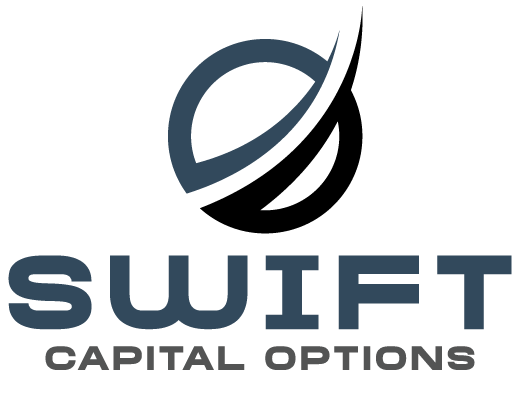Impact of Debt Consolidation and Refinancing on Business Credit Scores


At Swift Capital Options, we understand the importance of maintaining a strong business credit profile. Debt consolidation and refinancing can significantly impact your business credit score, both positively and negatively. This guide will help you understand these effects, enabling you to make informed decisions about your business's financial strategy.
Short-Term vs. Long-Term Effects
It's crucial to distinguish between the immediate and long-term impacts of debt consolidation and refinancing on your business credit:
Short-Term Effects:
- Potential temporary dip in credit score
- New credit inquiries
- Changes in credit utilization
Long-Term Effects:
- Improved payment history
- Reduced credit utilization
- Potentially higher credit score
How Debt Consolidation Affects Business Credit
1. Credit Inquiries
Impact: When you apply for a consolidation loan, lenders perform a hard inquiry on your credit report.
- Multiple inquiries in a short period can lower your score by a few points
- Effect is usually minor and temporary (typically 12 months)
Tip: Shop for loans within a short timeframe (14-45 days). Credit scoring models often treat multiple inquiries in this period as a single inquiry.
2. New Credit Account
Impact: Opening a new consolidation loan creates a new account on your credit report.
- Can temporarily lower your average account age
- Increases your total available credit
Long-term benefit: As the account ages, it can positively impact your credit mix and payment history.
3. Credit Utilization
Impact: Consolidation can significantly change your credit utilization ratio.
- If you close old credit accounts, it may increase your utilization ratio
- If you keep old accounts open, it can decrease your utilization ratio
Best practice: Keep old accounts open with zero balances to maintain a low utilization ratio.
4. Payment History
Impact: Consolidation provides an opportunity to improve your payment history.
- Consistent, on-time payments on the new loan positively impact your score
- Late payments on the new loan can have a severe negative impact
Key factor: Payment history is typically the most significant factor in credit scoring models.
5. Total Debt
Impact: While consolidation doesn't reduce your total debt, it can affect how it's viewed.
- Moving revolving debt (e.g., credit cards) to installment debt (e.g., term loan) can be viewed positively
- Reducing the number of accounts with balances can improve your credit profile
How Refinancing Affects Business Credit
Refinancing shares many similarities with consolidation in terms of credit impact, but there are some key differences:
1. Credit Inquiries and New Accounts
Similar to consolidation: Refinancing typically involves a hard credit inquiry and often results in a new account on your credit report.
2. Loan Terms
Impact: Changes in loan terms can affect your credit profile.
- Extending the loan term may lower monthly payments but increase total interest paid
- Shortening the term may increase monthly payments but reduce total interest and potentially improve your debt-to-income ratio faster
3. Credit Mix
Impact: Refinancing usually doesn't change your credit mix as dramatically as consolidation might.
- Maintaining a diverse mix of credit types (e.g., revolving and installment) is generally positive for your credit score
4. Closing Old Accounts
Impact: When you refinance, the old loan is typically closed and replaced with a new one.
- Closing an old account can temporarily lower your average account age
- The payment history of the closed account remains on your credit report for up to 10 years
Strategies to Minimize Negative Impact and Maximize Benefits
- Time Your Applications Wisely:
- Apply for consolidation or refinancing when your credit score is strong
- Avoid applying for other forms of credit around the same time
- Keep Old Accounts Open:
- For consolidation, keep old credit card accounts open with zero balances
- This maintains your credit history length and can improve utilization ratio
- Make Payments on Time:
- Set up automatic payments to ensure you never miss a due date
- Consistent on-time payments are crucial for improving your score
- Monitor Your Credit:
- Regularly check your business credit reports for accuracy
- Address any errors promptly
- Maintain Low Credit Utilization:
- Aim to keep your credit utilization below 30% across all accounts
- Consider making multiple payments per month to keep balances low
- Use the Right Type of Consolidation:
- Choose between a balance transfer, personal loan, or business loan based on what's best for your credit profile
- Avoid New Debt:
- After consolidation or refinancing, avoid taking on new debt
- Focus on paying down the consolidated/refinanced loan
Long-Term Credit Management
To maximize the positive impact of consolidation or refinancing:
- Create a Budget:
- Ensure you can comfortably make payments on the new loan
- Allocate funds for building an emergency reserve
- Address Root Causes:
- Identify and resolve the issues that led to debt accumulation
- Implement better financial management practices
- Regular Credit Reviews:
- Conduct quarterly reviews of your business credit reports
- Track your progress and adjust strategies as needed
- Diversify Credit Mix:
- Over time, aim for a healthy mix of different types of credit
- This can include term loans, lines of credit, and trade credit
- Build Strong Vendor Relationships:
- Establish trade credit with suppliers
- Ensure these accounts report to business credit bureaus
How Swift Capital Options Can Help
Navigating the credit implications of debt consolidation and refinancing can be complex. We offer:
- Credit Impact Analysis: Evaluate how different consolidation or refinancing options might affect your credit
- Strategy Development: Create a plan to minimize negative impacts and maximize benefits
- Lender Matching: Connect you with lenders whose criteria align with your credit profile
- Ongoing Monitoring: Help track your credit progress post-consolidation or refinancing
- Credit Improvement Guidance: Provide strategies to boost your business credit score over time
Next Steps
Ready to explore how debt consolidation or refinancing could impact your business credit? Here's what to do:
- Obtain your current business credit reports and scores
- Review your existing debt structure and payment history
- Consider your short-term and long-term business financial goals
- Contact Swift Capital Options to discuss your specific situation and options
Remember, while debt consolidation and refinancing can have immediate effects on your credit score, the long-term benefits often outweigh short-term fluctuations when managed properly.
Are you ready to take control of your business debt while protecting and improving your credit profile? Reach out to Swift Capital Options today. Let's work together to analyze your current credit situation, explore consolidation or refinancing options, and develop a strategy that not only addresses your debt but also positions your business for stronger credit and financial health in the future. With our expertise guiding you through this process, you can make informed decisions that balance immediate debt management needs with long-term credit optimization. Your path to better business credit and financial stability starts here – let's create a plan that sets your business up for success!




